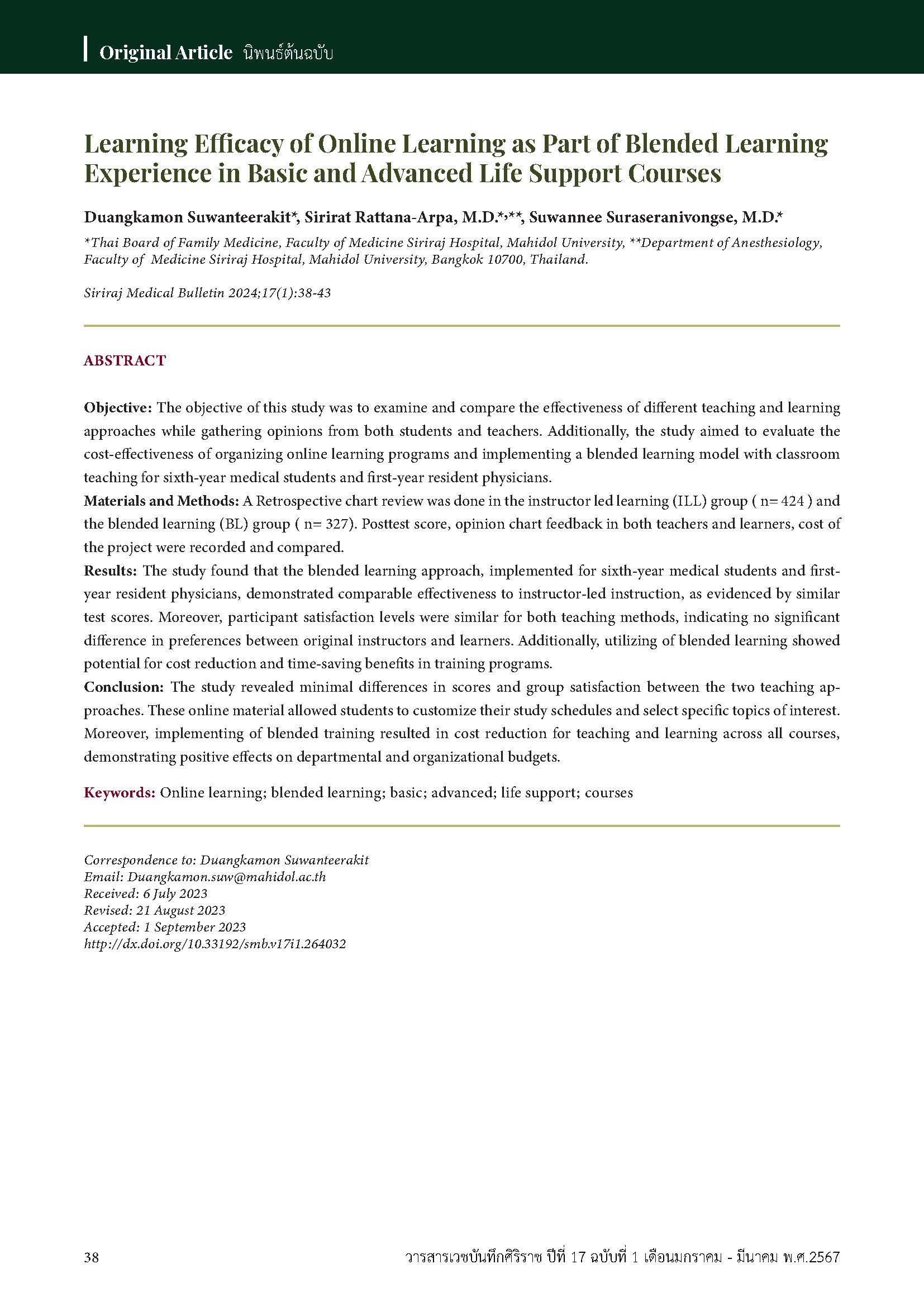Learning Efficacy of Online Learning as Part of Blended Learning Experience in Basic and Advanced Life Support Courses
Main Article Content
Abstract
Objective: The objective of this study was to examine and compare the effectiveness of different teaching and learning approaches while gathering opinions from both students and teachers. Additionally, the study aimed to evaluate the cost-effectiveness of organizing online learning programs and implementing a blended learning model with classroom teaching for sixth-year medical students and first-year resident physicians.
Materials and Methods: A Retrospective chart review was done in the instructor led learning (ILL) group ( n= 424 ) and the blended learning (BL) group ( n= 327). Posttest score, opinion chart feedback in both teachers and learners, cost of the project were recorded and compared.
Results: The study found that the blended learning approach, implemented for sixth-year medical students and first-year resident physicians, demonstrated comparable effectiveness to instructor-led instruction, as evidenced by similar test scores. Moreover, participant satisfaction levels were similar for both teaching methods, indicating no significant difference in preferences between original instructors and learners. Additionally, utilizing of blended learning showed potential for cost reduction and time-saving benefits in training programs.
Conclusion: The study revealed minimal differences in scores and group satisfaction between the two teaching approaches. These online material allowed students to customize their study schedules and select specific topics of interest. Moreover, implementing of blended training resulted in cost reduction for teaching and learning across all courses, demonstrating positive effects on departmental and organizational budgets.
Article Details

This work is licensed under a Creative Commons Attribution-NonCommercial-NoDerivatives 4.0 International License.
References
Ruiz JG, Mintzer MJ, Leipzig RM. The impact of e-learning in medical education. Acad Med 2006;81(3):207-212.
Khanna MS, Kendall PC. Bringing technology to training: Web-based therapist training to promote the development of competent cognitive-behavioral therapists. Cogn Behav Pract 2015;22(3):291–301. doi:10.1016/j.cbpra.2015.02.002
Morton CE, Saleh SN, Smith SF, Hemani A, Ameen A, Bennie TD, et al. Blended learning: How can we optimise undergraduate student engagement? BMC Med Educ 2016;16(1):195. doi:10.1186/s12909-016-0716-z
Jung I, Rha I. Effectiveness and cost-effectiveness of online education: A review of the literature. Educ Technol 2000;40(4), 57-60.
Masic I. E-learning as new method of medical education. Acta Inform Med 2008;16(2):103. doi:10.5455/aim.2008.16.102-117
Ijaz HIH, Saeed RM, Syed AF. A study on effectiveness of online learning system during COVID-19 in Sargodha. Int J Engl Lang Lit Stud 2020;2(4):134. doi:10.36892/ijlls.v2i4.404
de Gea JMC, Alemán JLF, García ABS. Computer-based Nursing Education: An integrative review of empirical studies. J Nurs Educ 2012;2(3). doi:10.5430/jnep.v2n3p162






